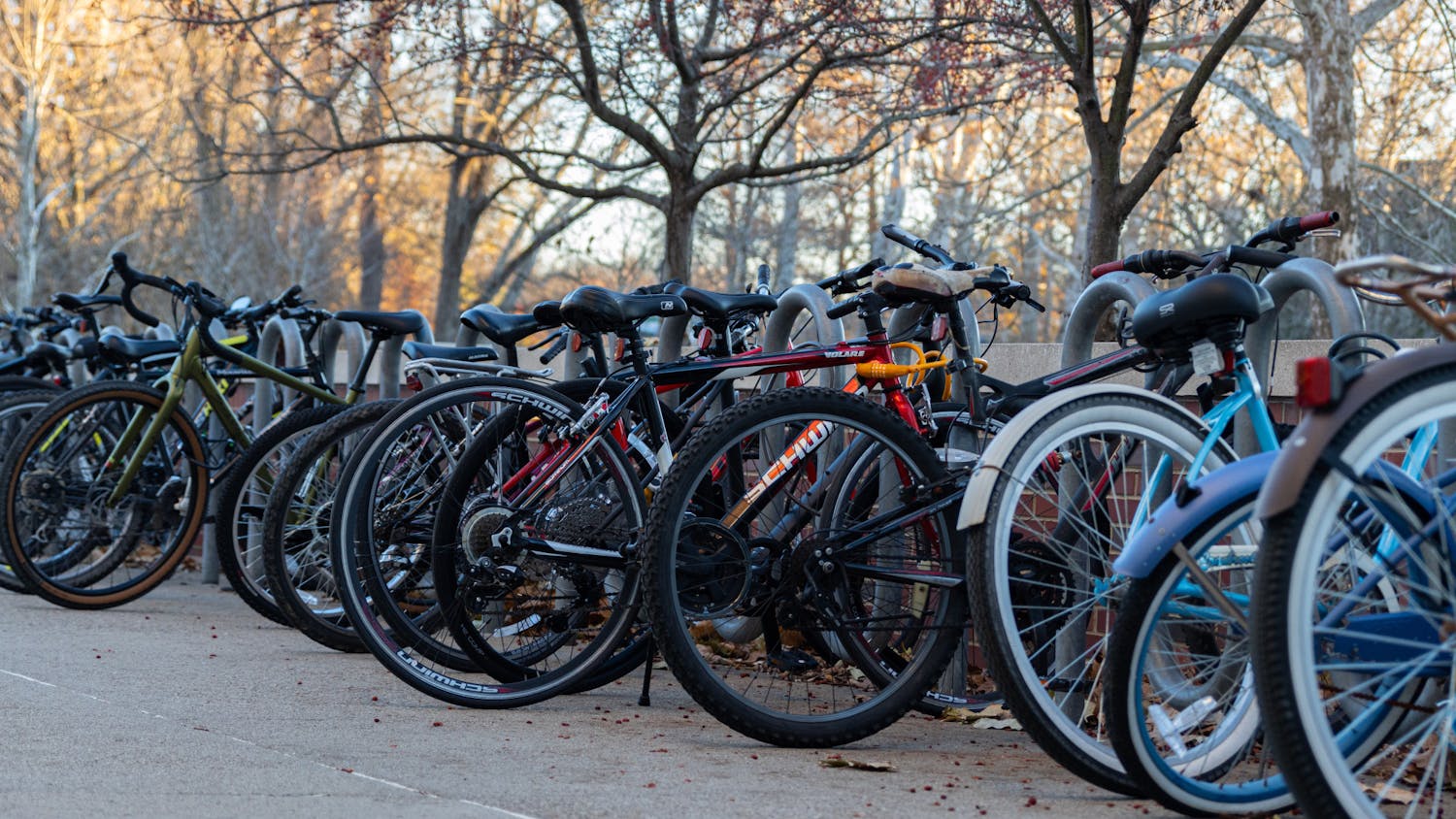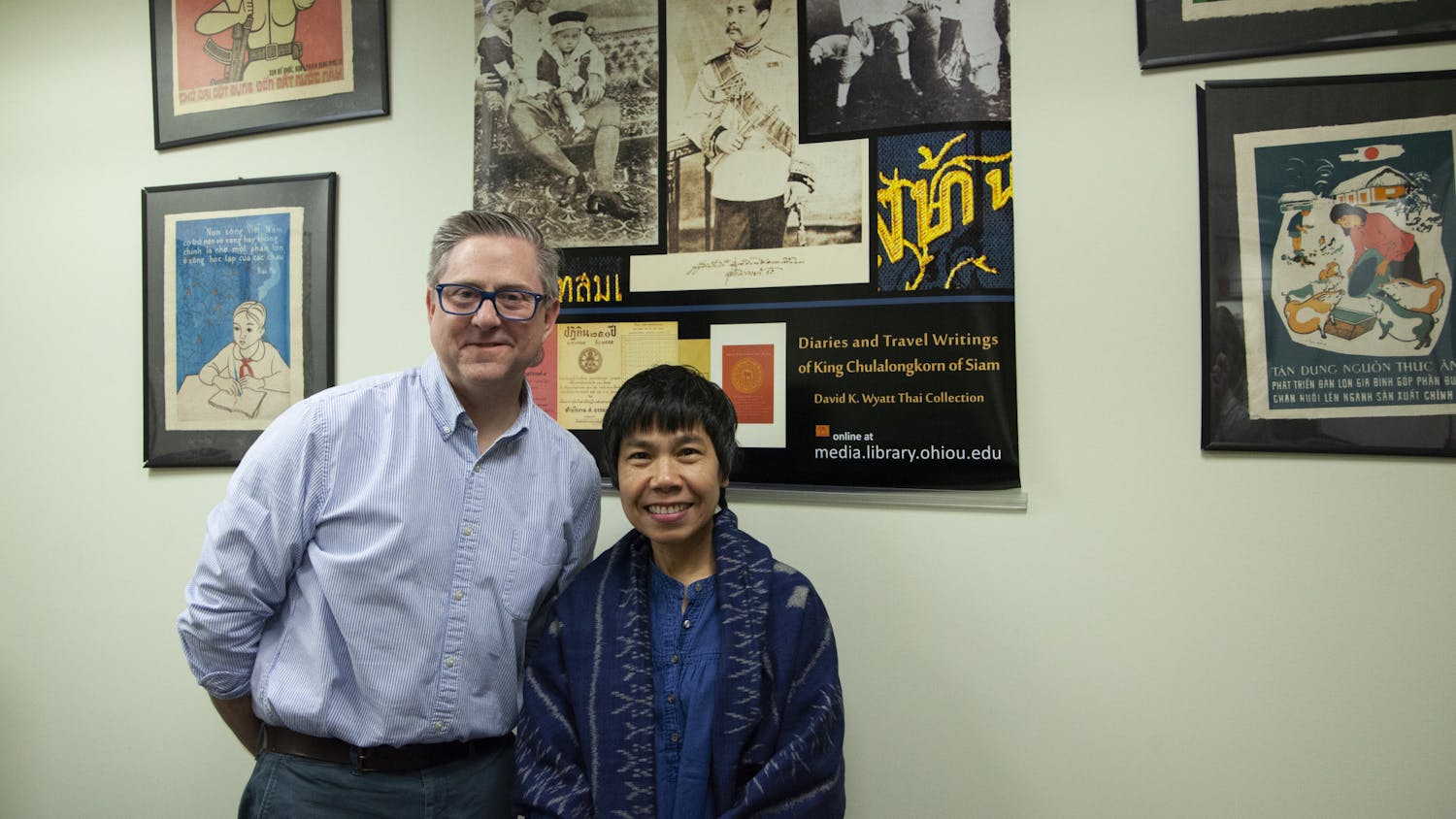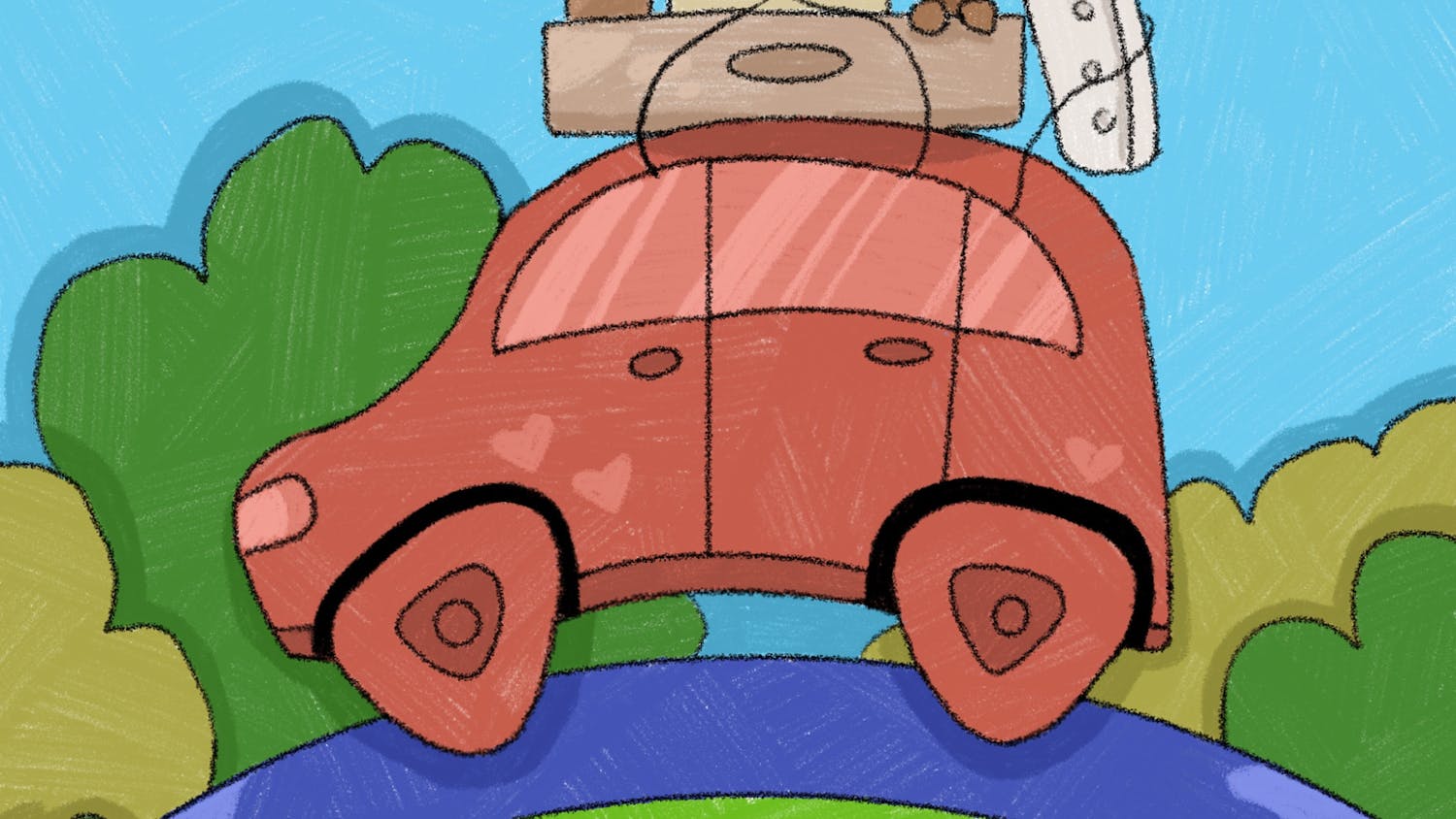Ohio University alumnus and Senior Editor of VICE news Wilbert L. Cooper released a documentary on VICE news, titled Red Right Hand, which explores “The Cleveland Strangler” crime case back in 2009.
Wilbert Cooper said it was his senior year at Ohio University when his father, a now retired police officer of the Cleveland Police Department, told him the news about two bodies that were found at 12205 Imperial Ave. in Cleveland.
“It was close to home for me and him,” Cooper, who is originally from Cleveland, said. “Time progressed and news broke that other bodies were being found at the home … I was curious … I wanted to find out more about the other side.”
Cooper, the senior editor of VICE, investigates the crimes of the serial killer, Anthony Sowell, who was convicted of murdering 11 black women in 2011 in his new documentary Red Right Hand, which was released Nov. 3.
The Post caught up with Cooper, who was a founding member of Backdrop magazine during his time at OU, to talk about his new documentary, VICE, Black Lives Matter and The Union Bar & Grill.
The Post: What gave you the idea and/or concept to create the film?
Wilbert Cooper: When the news of the situation broke out, I was in Athens, Ohio … As time progressed, I was curious to know about the other side. Recently, with the Black Lives Matter (movement) and the black community's relationship to the police, this story became a really important story through that prism because I think it represents the other side of police brutality. They are not having the ability to be treated as victims and their cries for help are often being ignored so they’re not getting the justice or protection from police departments as they should. So, that’s sort of how the story progressed and how I figured I can tell it and why I wanted to tell it right now.
P: In the film, many women who were victims of Sowell went to the police and said they didn’t receive action from the CPD and that the police kind of overlooked their incidents. Why do you think the police did that and do you believe it has something to do with the system or just the police department?
WC: We try to break it down as best as we can in the documentary … One of the layers is obviously the systemic, institutional breakdown within the police department where there are units that are understaffed. You look into elements that go beyond that, which are sort of values that some of these police officers made when dealing with these people. We kind of connect that with the situations dealing with race, class and gender and how when you’re coming from an impoverished community and lifestyle that possibly includes drugs or prostitution. You can be treated in a different way than you would if you were somebody else, somebody from a upward, mobile or affluent neighborhood, someone who was white.
P: In the era of Black Lives Matter and people of color fighting for equality, how do you think your film fits in with the overall conversation?
WC: It kind of goes back to what I was saying before and how what we tried to do with this documentary was a tough thing. It’s one that a lot of people don’t necessarily see. Black Lives Matter largely was inspired by these unarmed police shootings, which I think most people can pinpoint and be like, that’s f--ked up, that’s wrong because it’s obvious … what’s harder to talk about is mass incarceration. … because it’s more complicated. It’s less insidious. What we’re talking about is even harder to talk about than mass incarceration because we’re talking about … institutional racism. Racism that is ingrained into the system, regardless of whether it is said explicitly or not. But, I think it very much gets into the same spectrum as Black Lives Matter because these lives of these women, when you look at the way these cases were handled. It was very clear that the lives of these women did not matter… especially with these cases because they were black women. Because with Black Lives Matter, a lot of what we focus on or talk about is with men, like Eric Garner and Michael Brown … but women are incredibly marginalized and these were poor, black women.
P: What was one of the most memorable moments you can recall while shooting the film?
WC: Probably, one of the most memorable moments is shown in the last part of the documentary. I'm with one of the women who lost their mother to the serial killer, Anthony Sowell. We're walking through the graveyard trying to locate the mother's grave and like a lot of the women families (in the documentary), they don't have a ton of money, so they weren't able to afford to pay for a gravestone in the time that she died. People within the city promised her that there would be money allocated to help put a gravestone together, but of course that never took place. So, we're in the cemetery, it just rained and we're trying to dig through the dirt to find the marker of her gravestone. It was a very emotional kind of experience to be there. The grief that this woman felt because without the gravestone, she never had opportunities to properly heal the way everyone else does. It's just a powerful memory and it's something my mind goes back to all the time.
P: What was the most interesting piece you found during your investigation? Did you run into any obstacles?
WC: We definitely ran into some obstacles in terms of talking and getting access to some of the people. They felt exploited by the media in the past and they were very guarded about some of their stories. Some of the women who were attacked by Sowell and survived, telling their stories was a very painful thing to do. So, obviously, intellectually going in (to film), it was going to be hard. When they're telling their stories and its unfolding right in front of you and how they're talking about how they were attacked and the different situations that took place with them and Anthony, the intensity, the pain, the anguish, it becomes much more clearer and you can't prepare yourself to hear that story as a journalist. When you hear it, it kind of blows you away. Just hearing people open up and tell their stories was definitely a challenge, but I think it was absolutely worth it to get those kind of real reactions and real accounts. It's kind of what makes the documentary special.
P: What did you study at OU and has your degree affected your career in any way?
WC: I graduated in 2010 with a degree in magazine journalism from the Scripps School. My focus was in politics … There’s so many professors and teachers that kind of paved the way for me and help me find my voice and I’ve been able to carry that voice and foundation wherever I’ve gone. So, OU is a special place and it’s a lot of fun, which I think is important because at VICE, it’s the same thing. We work really hard and we like to have fun. So, OU is definitely a great preparation for what I would end up doing in Brooklyn, grad school and all those other kind of things.
P: What do you hope viewers take away after watching your documentary?
WC: I definitely hope that people understand when crimes like this happen, they leave a great impact that goes beyond just the people that were directly hurt. But, that it scars families, it scars communities and it scars cities. Hopefully, that will mobilize people to do more. I also hope that the documentary highlights some of the systemic issues that exist within American police institutions so that we can try do more to make our police departments protect us, instead if brutalize us.
P: Do you miss anything about Athens?
WC: Yeah, I miss a lot of stuff about Athens. If I had to pin it down to one thing, it would probably be The Union. That’s probably the thing I miss the most. I spent just a ridiculous amount of time there playing music and listening to music … The Union helped me to be ready to be a VICE employee, with the culture and the attitude and everything it cultivated. It was a great place.
@its_candicew
cw873012@ohio.edu






